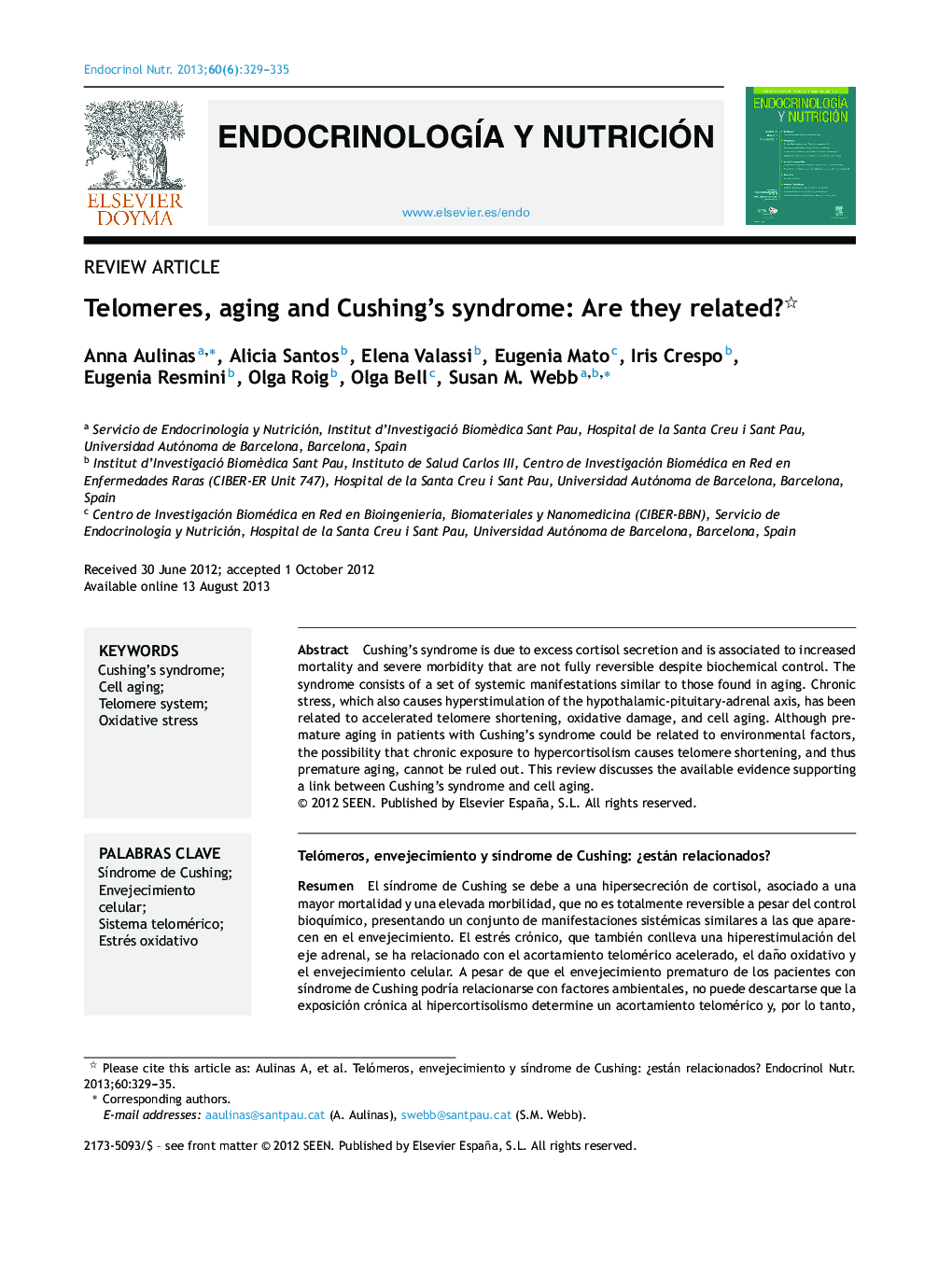| Article ID | Journal | Published Year | Pages | File Type |
|---|---|---|---|---|
| 3267165 | Endocrinología y Nutrición (English Edition) | 2013 | 7 Pages |
Cushing's syndrome is due to excess cortisol secretion and is associated to increased mortality and severe morbidity that are not fully reversible despite biochemical control. The syndrome consists of a set of systemic manifestations similar to those found in aging. Chronic stress, which also causes hyperstimulation of the hypothalamic-pituitary-adrenal axis, has been related to accelerated telomere shortening, oxidative damage, and cell aging. Although premature aging in patients with Cushing's syndrome could be related to environmental factors, the possibility that chronic exposure to hypercortisolism causes telomere shortening, and thus premature aging, cannot be ruled out. This review discusses the available evidence supporting a link between Cushing's syndrome and cell aging.
ResumenEl síndrome de Cushing se debe a una hipersecreción de cortisol, asociado a una mayor mortalidad y una elevada morbilidad, que no es totalmente reversible a pesar del control bioquímico, presentando un conjunto de manifestaciones sistémicas similares a las que aparecen en el envejecimiento. El estrés crónico, que también conlleva una hiperestimulación del eje adrenal, se ha relacionado con el acortamiento telomérico acelerado, el daño oxidativo y el envejecimiento celular. A pesar de que el envejecimiento prematuro de los pacientes con síndrome de Cushing podría relacionarse con factores ambientales, no puede descartarse que la exposición crónica al hipercortisolismo determine un acortamiento telomérico y, por lo tanto, envejecimiento. En esta revisión se repasan las evidencias existentes que podrían relacionar el síndrome de Cushing y el envejecimiento celular prematuro.
